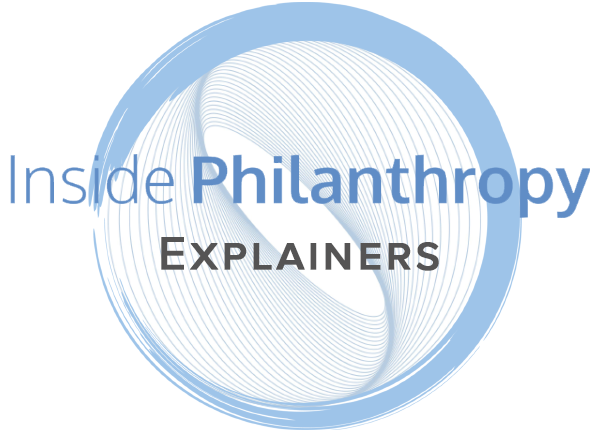Here's How Socially Conscious Employees Are Driving a Paradigm Shift in Corporate Giving
/photo: Rawpixel.com/shutterstock
2016 and 2017 ushered in a seismic shift in corporate giving. A 2017 study of the charitable donations made by nearly 300 global companies and their people showed that human rights organizations and other progressive causes were receiving far more support than the traditional leading causes. For example, the American Civil Liberties Union (ACLU) is now the No. 6 recipient of corporate charitable giving in 2016, and No. 1 in early 2017—a massive move from 87th place in 2015. Similarly, Planned Parenthood and the Southern Poverty Law Center made giant leaps.
A divisive political climate (and the feeling that there is a social justice vacuum to be filled in terms of leadership) is one element at play. But also, more corporations are thinking differently about the role their employee giving and community investment programs can play in creating a culture of meaning, purpose and belonging in their organizations.
A Desire for Social Impact
Today’s diverse, socially conscious generation of workers is eager for opportunities to give, volunteer and get involved in their company’s social impact efforts. In fact, data from Cone Communications shows that 88 percent of millennials say their job is more fulfilling when they are provided opportunities to make a positive impact, and 84 percent of millennials want their company to identify ways to get involved in their community. Consumer preferences are also becoming more cause-driven.
Clearly, work is no longer just a transactional relationship. Employees (especially millennials, who now comprise almost 50 percent of the workforce) expect the organizations they work for to reflect their values. For employers who truly want to empower their people’s passions, sending checks to a list of pet charities chosen by the company is no longer enough. From an employee’s perspective, being “voluntold” to contribute to a company-chosen cause is antithetical to the democratized digital world they have grown up in and now expect.
Getting everyone involved demands a different way of looking at prosocial programs, and especially at how a company can infuse everything it does with passion and purpose. That’s where a more inclusive, human-centered approach to corporate “goodness” programs—spanning fundraisers, matching gift programs, employee volunteerism, community impact grants, diversity and inclusion initiatives, and more—can have big impact. Just as WIFM ("what’s in it for me?") is a simple but powerful concept, so too is matching: When employees’ individual donations to their causes are matched by their employer, they feel supported, creating a deeper sense of loyalty and engagement to their company.
Companies like Apple are recognizing this. In a recent public interview, CEO Tim Cook made Apple’s position clear: “When a company sets up a foundation, there is a risk, in my judgment, of the foundation becoming this other thing that is not connected to the company,” he said. “I don’t want that for Apple. I want everybody involved.”
Let Employees Take the Lead
Today’s political atmosphere is undoubtedly driving a desire for change. But companies may be wary of taking an “official” stance on hot-button issues for fear of alienating their people or customers. By letting their employees take the lead, employers can be assured that their giving programs and stance on social responsibility are reflecting the authentic values of their people.
An example is Google’s response to the travel ban that was announced earlier this year. Shortly after the executive order was announced, Googlers raised $2 million for refugee support in under 24 hours after the company pledged to match their efforts.
Today’s employers need to let their people choose how, when and where they want to give, rather than dictating which causes they will support, and they need to give their people consumer-grade technology that makes it easy. Offering a range of prosocial behaviors—like complementing matching programs with volunteering opportunities—ensures everyone can get involved in a way that works for them.
A New Mantra: Empower and Support
Today, companies must turn the traditional approach to corporate giving on its head and do away with the once-a-year arm-twisting exercise. Instead, they need to empower and support their people’s generosity and desire for impact.
Progressive companies like Visa, Google and Hewlett Packard Enterprise are enabling employee-centric giving with technology and infrastructure that makes giving time, talent and money throughout the year simple, convenient and effortless. It isn’t necessarily how much is contributed, it is the empowered nature of it that creates the virtuous cycle of impact and engagement. When employees are given the tools and trust that allow them to create social change, they can take the lead when needs arise instead of waiting for the “charitable arm” of the company to do something. It also translates into how they do their jobs.
For all the discussion of how millennials are different than boomers, how diversity and inclusion policies need to be implemented, how everything good derives from a positive corporate culture, there is one unequivocal fact that can no longer be ignored: Top-down leadership will no longer carry the day (if it ever did!). When properly engaged, there is immense power in the crowd. And when corporations fail to support their people’s passions, any claims of authenticity and inclusiveness become words on a wall that hold little meaning, and in fact, act to disengage.
Bryan de Lottinville is the Founder and CEO of Benevity, which provides online workplace giving, matching, volunteering and integrated grant management solutions.






































